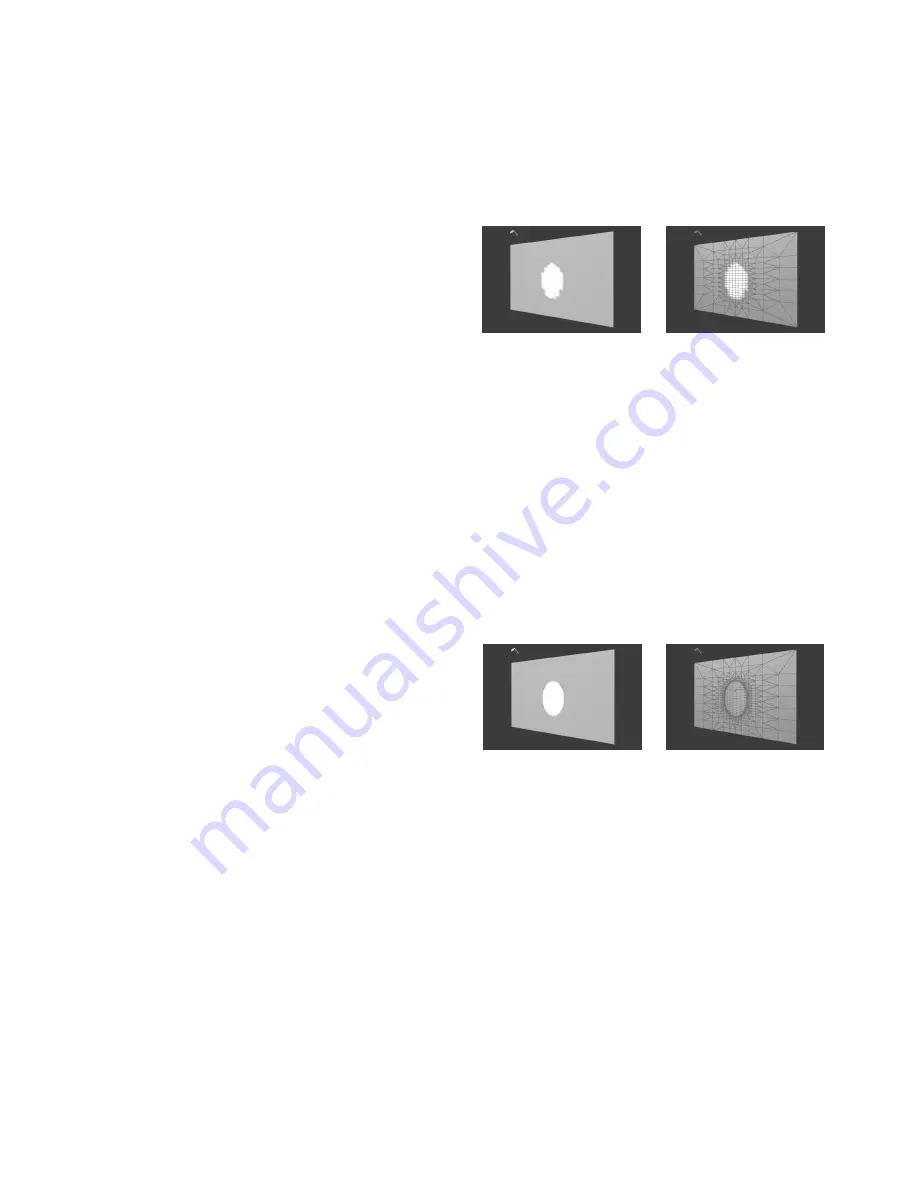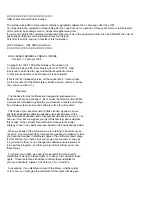
Reducing Meshing Artifacts
187
❚❘❘
Reducing Meshing Artifacts
Because of how the system generates a radiosity
mesh, there are a number of visual artifacts that can
appear in a radiosity solution. This section describes
ways of minimizing their effect.
Lightscape has tools to reduce some artifacts. You
can avoid others by taking additional steps during
the modeling process. Some artifacts may be
unavoidable or may simply not be significant
enough to warrant the additional effort or memory
required to eliminate them.
It is possible to encounter the following types of
meshing artifacts:
•
Jagged shadow boundaries
•
Shadow leaks
•
Light leaks
•
Floating objects
•
Mach bands
•
Streaky shadows.
For each pair of illustrations in this section, the
image on the left shows the display result and the
image on the right shows the generated mesh.
Jagged Shadow Boundaries
During adaptive subdivision, Lightscape divides
existing mesh elements into four parts by inserting a
new vertex at the midpoint of each element edge.
Typically, this procedure results in a shadow or light
beam that does not align with the mesh. This can
lead to shadow boundaries that look jagged or
stepped.
The following illustration shows the radiosity solu-
tion of a sharp spotlight on a wall. Notice that the
edges of the spotlight are jagged. The image on the
right shows the mesh of this solution, demonstrating
that the smallest mesh elements are still rather large
compared to the illumination details they are trying
to capture.
The easiest way to alleviate this problem is to
decrease the minimum mesh spacing, either for the
entire environment or preferably just for the
problem surfaces.
The following illustration shows the same scene
computed with a minimum mesh spacing four times
smaller than that in the previous example. Although
it looks better, it requires about five times the
number of mesh elements.
If you have a scene that has many sharp shadow
boundaries, such as sunlight or spotlights, gener-
ating such a fine mesh can use a large amount of
memory.
Correct with Ray Tracing
Another way you can correct jagged shadow bound-
aries is to ray trace the light sources that generate the
sharp shadow by using the Ray Trace Direct Illumi-
nation option of the ray tracer. You enable the Ray
Tracing option (in the properties of the luminaire)
Solution produces jagged shadow
boundaries on the wall
Increased number of mesh elements reduces
jagged shadow boundaries
Summary of Contents for LIGHTSCAPE
Page 1: ...SULO 4 31 93 36034333308355 LJKWVFDSH...
Page 18: ...NOTES 10...
Page 110: ...NOTES 102...
Page 136: ...NOTES 128...
Page 166: ...NOTES 158...
Page 176: ...NOTES 168...
Page 202: ...NOTES 194...
Page 210: ...NOTES 202...
Page 248: ...NOTES 240...
Page 294: ...NOTES 286...
Page 308: ...NOTES 300...
Page 316: ...NOTES 308...
Page 324: ...NOTES 316...
Page 342: ...Glossary 334 Lightscape...
Page 360: ...Index ix 352 Lightscape...
Page 362: ......
















































